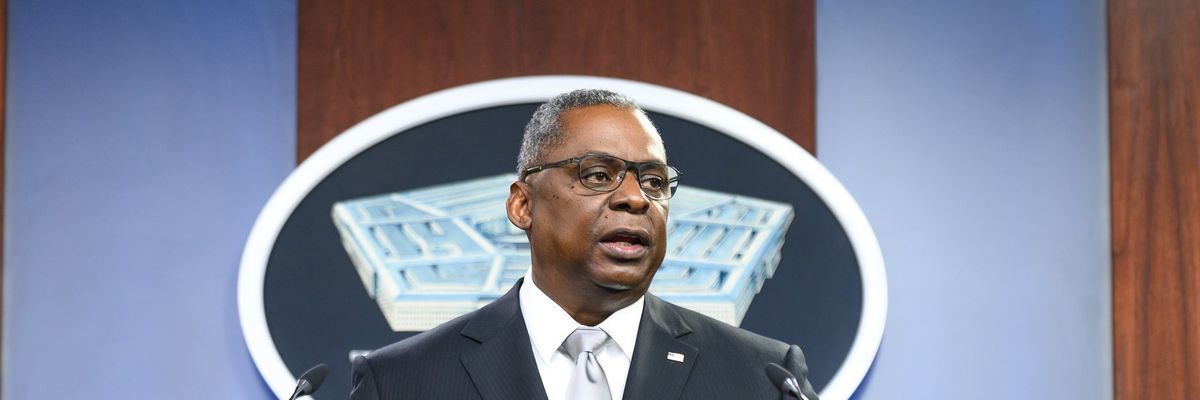Despite recent hopeful signs of warming U.S.-Russia relations, Russia suspended its NATO mission on Monday in response to NATO expelling eight of the Russian mission’s diplomats for alleged spying. The episode came one day after Defense Secretary Lloyd Austin said “there is an open door to NATO” for both Georgia and Ukraine, something experts say would be needlessly antagonistic toward Moscow.
To deal with any emergencies after this week’s incident, the Russians suggested the two sides communicate via their embassy in Brussels. But Russian Foreign Minister Sergei Lavrov said that NATO has long ago “buried the key rule [of cooperation] of the Russia-NATO council with their own hands.”
The council was created in 2002 during the brief era of hope for NATO-Russia cooperation but Russia’s annexation of Crimea largely put an end to that and the council has met only sporadically since.
Referring to the news this week, Milan Czerny, a researcher of Russian foreign policy at the University of Oxford, told the Responsible Statecraft that “in itself the end of the Russian delegation is not very meaningful. But it is symbolic of an important broader trend that is deterioration of ties between the U.S. and Russia.”
Many experts link this deterioration in part to NATO expansion. Russia officially considers NATO to be a national security threat. Georgia and Ukraine both saw a Russia-backed insurgency when the Kremlin became concerned at the prospect of each joining NATO back in 2008 and 2014.
Ben Friedman, Policy Director at Defense Priorities, called Austin’s statement hypocritical.
“Ukraine needs to cut a deal with Russia,” he said. “The U.S. dangling the NATO prospect in front of Ukraine prevents Ukraine from having a working foreign policy towards its main issue.”
Friedman, who has argued against Ukraine’s NATO membership, called Austin’s suggestion a “bad idea” because both Ukraine and Georgia have territorial conflicts with Russia.
“They would be very hard to defend while offering almost no benefit. It’s a loser for a cost-benefit analysis,” he said, adding that “the territorial integrity of Georgia and Ukraine is not related to U.S. security” while Russia has a “strong historical interest” in these countries, especially in Ukraine.
During a briefing with the Ukrainian minister of defense on Tuesday, Secretary Austin said “no third country” — meaning Russia — “can veto Ukraine's accession to NATO.” However, NATO members can veto new accessions and European allies don’t seem keen on Ukraine’s membership. French Minister for Europe and Foreign Affairs Jean-Yves Le Drian said in June that France believes "that for the moment the conditions [for Ukraine’s membership] are not met."
Regarding Austin’s comments on potential NATO membership for Georgia and Ukraine, Friedman believes that the United States has “lost the ability to differentiate between the countries it supports diplomatically and those it would fight a war for.”
“I think this is something that Washington needs to get over,” he said. “We need to get back into the habit of thinking more clearly about alliances.”
















